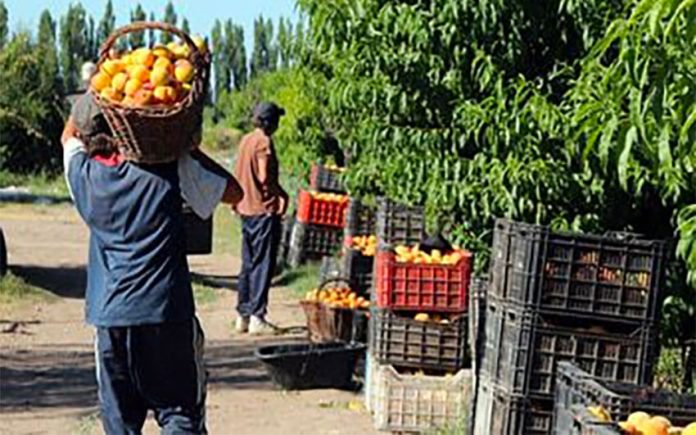Mexico’s produce industry has taken another hit from cartel violence, as tens of millions of dollars worth of peaches are set to be lost after farmers abandoned their fields.
An estimated 3 million trees across 6,000 hectares have been abandoned by farmers in the municipality of Jerez, in the central state of Zacatecas, one of the top peach-producing regions of Mexico, where up to 8,000 tonnes are harvested annually. Losses could reach some US $45 million, reported El Sol de Zacatecas.
Cartel violence in Zacatecas has surged in recent years. In March, a group of displaced Jerez residents traveled to Mexico City to protest a lack of government action to safeguard their communities. Some 2,000 people from 17 communities have fled, Radio Formula reported. Miguel Ángel Torres Rosales, the congressional representative for Zacatecas, said residents who demanded protection had been provided only a National Guard escort to pack their belongings and leave their homes, according to a report by the news magazine Buzon.
Mauro Talamantes, state coordinator for the National Farmer’s Confederation in Zacatecas, claimed that more communities had been displaced than were reported. “Now we are talking about 30 displaced communities and all the productivity that this implies,” he told reporters.
Ranchers and apple growers in the state have also suffered losses after fleeing their farms. NTR Zacatecas reported that data from the Zacatecas Farmer’s Parliament, a collection of civil society organizations, shows that over 10,000 head of cattle have been lost and 2,000 hectares of apples have been left to perish.
As InSight Crime reported in March 2021, Jerez has become a hotbed for synthetic drug production and sits along drug trafficking routes to the United States. A battle for control of Zacatecas is currently being waged between two of Mexico’s most powerful cartels, the Sinaloa Cartel and the Jalisco New Generation Cartel (CJNG).
InSight Crime analysis
Peaches are the latest loss in Mexico’s agricultural heartland, where other valuable crops, such as avocados and limes, have been left to rot in recent years after growers faced violent cartel threats and extortion.
The avocado business – dubbed “green gold” for its profitability – has long been a target of extortion by criminal groups. Cartels charge monthly protection payments from farmers. Gunmen rob trucks transporting the fruit. Fears of violence aimed at U.S. safety inspectors led the U.S. government to temporarily suspend avocado imports earlier this year.
Lime farmers also have been in the crossfire of cartel violence. Plantations of limes were left unharvested in Michoacán in 2021 after farmers and workers fled for their safety. Farmers have reported criminal groups dictating prices to them to squeeze higher fees.
Fruit prices in Mexico have risen drastically, with peaches, apples, papaya and others increasing between 10 and 45% recently. While many factors have contributed to the inflation of fruit prices, supply reductions have been blamed on farmers being forced to flee.
Farmers are also likely to have difficulties resuming cultivation after abandoning crops. Residents have reported that criminal groups have looted houses and stolen tractors in their absence. In February, El Sol de México reported that over 30,000 people living in Zacatecas had left, leaving behind ghost towns of abandoned homes and fields.
Reprinted from InSight Crime. Henry Shuldiner is a writer with InSight Crime, a foundation dedicated to the study of organized crime.
